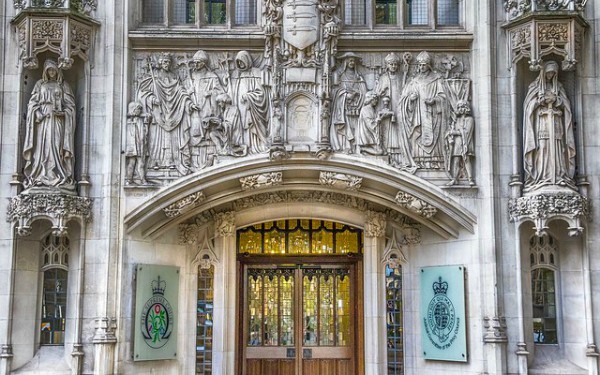
The Supreme Court will hear a case to determine responsibility for funding mental health aftercare for certain out-of-area placements.
It has granted Worcestershire council the right to appeal a Court of Appeal judgment that ruled against the authority and in favour of the government, in a case concerning ordinary residence in relation to section 117 of the Mental Health Act 1983.
The case centres on the lawfulness of a 2020 Department of Health and Social Care (DHSC) policy under which responsibility for aftercare for people detained multiple times under the Mental Health Act remains with the council where the person lived immediately before their first detention.
The DHSC had determined Worcestershire to be responsible for the aftercare of a woman, JG, it had placed in a care home in Swindon, after she was then subsequently detained in hospital from there, and discharged again for aftercare.
Learn about the government’s new approach
 Community Care Inform Adults users can benefit from a detailed guide to the government’s new approach to determining ordinary residence in section 117 aftercare cases, by legal editor Tim Spencer-Lane. This will be updated to take account of all future developments.
Community Care Inform Adults users can benefit from a detailed guide to the government’s new approach to determining ordinary residence in section 117 aftercare cases, by legal editor Tim Spencer-Lane. This will be updated to take account of all future developments.
Worcestershire successfully overturned this at the High Court last year, in a judgment which found Swindon to be responsible for JG’s care and rejected all three bases of the DHSC’s policy:
- That the Care Act’s deeming rules – under which a person’s ordinary residence remains with an authority that places them out of area – applied to section 117 cases, and so responsibility for JG remained with Worcestershire. The High Court ruled that this was not applicable to the Mental Health Act, in which there are no deeming rules.
- That the reference in section 117(3) to responsibility for a person’s aftercare lying with the area where they were ordinarily resident “immediately before being detained” related to the time prior to the first of multiple detentions. The High Court found that it referred to the area where the person was ordinarily resident before the particular detention in question – Swindon in JG’s case.
- That responsibility for aftercare did not end when a person was detained again but, as per section 117(2), when the relevant council and NHS commissioning body decided that the person no longer needed it. The High Court rejected this for similar reasons to point 2: that, under section 117(3), responsibility lay with the council and CCG where the person was ordinarily resident immediately before the detention in question.
Court of Appeal’s partial backing for government
The Court of Appeal overturned the lower court’s decision that Swindon was responsible for her aftercare, on the third ground. Giving the lead judgment, Lord Justice Coulson said that section 117(2) “could not be clearer” in saying that a council and NHS body’s section 117 duty continued “until such time” as they were satisfied that the person no longer needed aftercare.
The second ground was not raised in the appeal. However, on the first ground, the Court of Appeal rejected the DHSC’s approach, citing the binding precedent of the 2011 Hertfordshire case, which found that the deeming rules did not apply in section 117 cases.
Since Worcestershire challenged its policy in 2020, the DHSC has deferred making determinations on disputes between councils in relation to section 117 that are similar to JG’s case. After Worcestershire was granted to leave to appeal this week, it confirmed it would continue to do so until the Supreme Court handed down its judgement.
Regardless of the outcome, the DHSC intends to legislate to put its policy into law through its reform of the Mental Health Act 1983, with provisions to apply the Care Act and Social Services and Well-being (Wales) Act 2004’s deeming rules to section 117 cases having been inserted into the current draft Mental Health Bill.
A date has not been set for the hearing.


 A trauma-informed approach to social work: practice tips
A trauma-informed approach to social work: practice tips  Problem gambling: how to recognise the warning signs
Problem gambling: how to recognise the warning signs 




 Find out how to develop your emotional resilience with our free downloadable guide
Find out how to develop your emotional resilience with our free downloadable guide  Develop your social work career with Community Care’s Careers and Training Guide
Develop your social work career with Community Care’s Careers and Training Guide  ‘Dear Sajid Javid: please end the inappropriate detention of autistic people and those with learning disabilities’
‘Dear Sajid Javid: please end the inappropriate detention of autistic people and those with learning disabilities’ Ofsted calls for power to scrutinise children’s home groups
Ofsted calls for power to scrutinise children’s home groups Seven in eight commissioners paying below ‘minimum rate for home care’
Seven in eight commissioners paying below ‘minimum rate for home care’
 Facebook
Facebook X
X LinkedIn
LinkedIn Instagram
Instagram
Comments are closed.